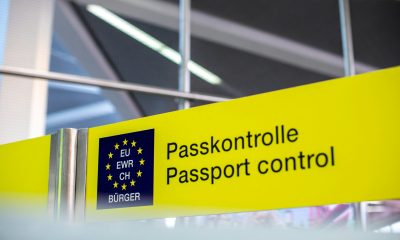Afaceri
Statele UE împinge înapoi împotriva licențe de spectru #wireless 25 ani

 Germany and Italy are among 15 European Union member states pushing back against a proposal to set a 25-year minimum on wireless spectrum licenses, thwarting the telecoms industry's hopes for a more coordinated approach across the bloc, scrie Julia Fioretti.
Germany and Italy are among 15 European Union member states pushing back against a proposal to set a 25-year minimum on wireless spectrum licenses, thwarting the telecoms industry's hopes for a more coordinated approach across the bloc, scrie Julia Fioretti.
The European Commission has tried for years to coordinate how national governments allocate so-called wireless spectrum or parcels of airwaves to mobile operators such as Vodafone, Deutsche Telekom and EE to create a single European telecoms market.
Telecoms companies have also long called for a more coordinated spectrum policy. License durations vary across Europe, making it harder for the companies to operate on a larger scale and compete with U.S. rivals.
But national authorities have been reluctant to give up control over how they sell their wireless spectrum, which can raise billions of euros for governments.
The Commission sought to address this by proposing a minimum spectrum license duration of 25 years in a telecoms reform proposal in September.
But in a position paper seen by Reuters the countries said mandatory fixed license durations were "disproportionate and insufficiently flexible to be able to respond to market developments."
Excessively long license durations risk "preventing innovation if relevant frequency bands are awarded for longer than the life cycle of a technology," the paper said.
The paper was signed by Austria, Bulgaria, Croatia, Cyprus, the Czech Republic, Finland, Germany, Greece, Ireland, Italy, Latvia, the Netherlands, Poland, Spain and the United Kingdom.
Increased spectrum trading or the possibility of withdrawing a license from an operator if it is not used are not sufficient counterbalances to the long license durations, the paper also said. These depend either on the good will of operators or require lengthy withdrawal of rights procedures with subsequent legal uncertainty due to cases of litigation, it said.
Currently spectrum licenses in Europe are awarded for around 10-15 years.
The countries also take issue with the Commission's proposed peer review mechanism to review national regulators' draft measures on spectrum allocation.
"A peer review process as proposed ... is based on the idea that any award decision can be checked against an ideal model," the paper said.
The mandatory peer review would create an "immense bureaucratic burden" on national administrations and the Commission as well as creating legal uncertainty and risk stifling innovation.
"Preserving the status quo is no good option," said Steven Tas, Chairman of ETNO, the European telecoms lobby group representing Deutsche Telekom, Telecom Italia, Vodafone and Telefonica, among others.
"5G roll-out requires longer licenses and a pro-investment approach to spectrum management as well as network regulation."
The EU executive has made a priority of fostering the early development of 5G mobile technology in Europe, and estimates that 5G will bring 146.5 billion euros ($159 billion) per year in benefits.
Trimiteți acest articol:
-

 Conflictezile în urmă 3
Conflictezile în urmă 3Kazahstanul intervine: eliminarea diviziunii dintre Armenia și Azerbaidjan
-

 Kazahstanzile în urmă 5
Kazahstanzile în urmă 5Voluntarii descoperă petroglife din epoca bronzului în Kazahstan în timpul campaniei de mediu
-

 Extinderezile în urmă 4
Extinderezile în urmă 4UE își amintește de optimismul de acum 20 de ani, când 10 țări s-au alăturat
-

 Legea privind serviciile digitalezile în urmă 4
Legea privind serviciile digitalezile în urmă 4Comisia ia măsuri împotriva Meta din cauza posibilelor încălcări ale Legii privind serviciile digitale























